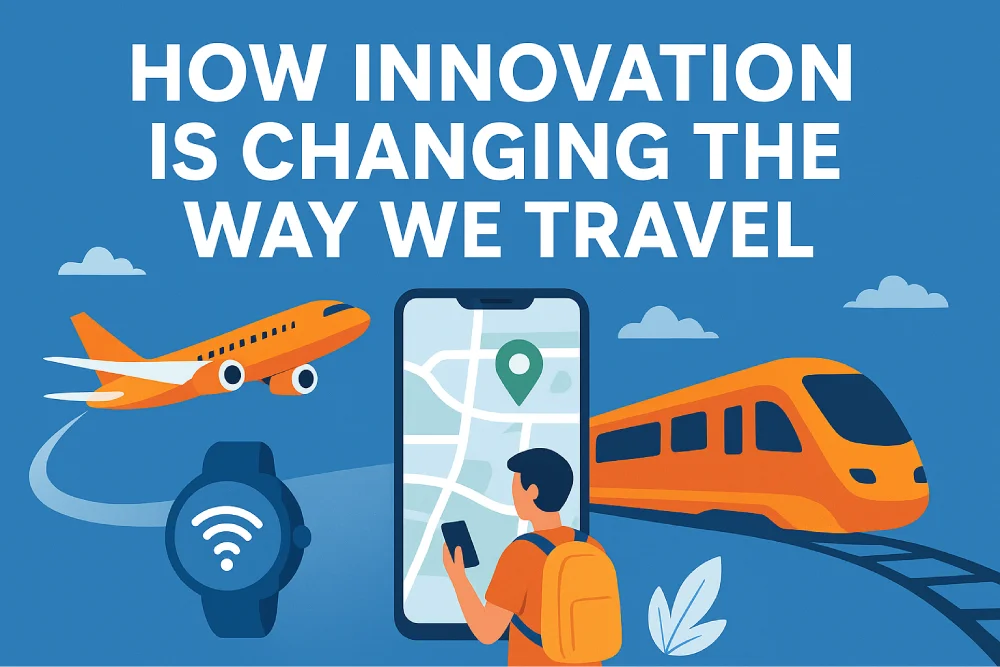Travel has always been about discovery, but innovation has transformed how we plan, experience, and remember our journeys. From digital tools that simplify booking to environmentally friendly transportation methods, technology continues to reshape the way people move around the world. These advancements make travel more accessible, efficient, and sustainable while also enhancing the human experience behind every trip.
Table of Contents
Smarter Planning with Digital Technology
Gone are the days of paper maps and phone calls to book a hotel. Today’s travellers can plan entire trips using their smartphones. Apps and websites allow instant comparisons for flights, accommodations, and activities, often tailored to personal preferences. Artificial intelligence helps generate customised itineraries, suggesting destinations and experiences based on interests and budget. This intelligent planning reduces stress and opens up opportunities for more spontaneous travel.
Transportation That Adapts to Modern Needs
One of the most exciting areas of travel innovation lies in transportation. Electric vehicles, improved public transit systems, and efficient logistics networks are making travel both greener and faster. In the world of road travel, services such as Montana motorcycle shipping allow enthusiasts to move their bikes safely to their starting points. This makes it easier to explore new regions without the limitations of distance. Whether you are embarking on a cross-country adventure or relocating, these modern transport solutions ensure smoother travel experiences.
Eco-Friendly Innovations for a Sustainable Future
Sustainability has become a driving force in the evolution of travel. Travellers are increasingly aware of their environmental footprint, and innovators are responding with greener solutions. Electric buses, hybrid trains, and carbon-neutral flights are becoming more common. Hotels and tour operators are also incorporating renewable energy, eco-friendly designs, and waste reduction initiatives. This shift toward sustainable travel ensures that future generations can continue exploring the world without harming it.
The Rise of Smart Travel Experiences
Technology is not just making travel easier; it is making it smarter. Digital check-ins, virtual boarding passes, and biometric identification systems have streamlined airport experiences. Augmented reality is enhancing sightseeing by allowing travellers to visualise historical landmarks as they once appeared. Wearable tech, such as smartwatches and translation devices, keeps travellers connected and informed no matter where they are. These innovations help create seamless and interactive experiences that elevate every journey.
Remote Work and the Digital Nomad Movement
Another transformative change is the rise of remote work. With digital connectivity stronger than ever, many professionals are combining work and travel. This has led to a new wave of digital nomads who can operate from anywhere in the world. Co-working spaces, long-term rental platforms, and reliable internet infrastructure have made this lifestyle not only possible but increasingly popular. Innovation has blurred the line between travel and everyday life, turning the world into one interconnected workspace.
Personalisation Through Artificial Intelligence
Artificial intelligence is revolutionising how travellers experience the world. AI-powered systems analyse user data to provide tailored suggestions for destinations, dining, and attractions. Virtual travel assistants can now anticipate needs, such as recommending a nearby café after a morning museum visit or suggesting an earlier route to avoid traffic. These personalised touches create a sense of connection between travellers and their journeys, turning every trip into a unique experience crafted to individual tastes and habits.
The Future of Space and Autonomous Travel
Perhaps the most futuristic innovations in travel lie in the exploration of new frontiers. Companies are developing commercial space travel opportunities, offering civilians a glimpse of Earth from orbit. Meanwhile, advancements in autonomous vehicles promise safer, more efficient road trips and even self-navigating public transport. As these technologies mature, the way we view distance, safety, and accessibility will continue to evolve. Tomorrow’s travel may extend beyond the planet, but its purpose remains the same: to connect, explore, and learn.
Innovation has redefined what it means to travel. Technology now guides, powers, and personalizes every step of the journey while helping protect the planet for future adventurers. Whether it is the convenience of planning through smart devices, the sustainability of new transport systems, or the freedom to explore the world on your own terms, travel today is both more dynamic and more meaningful. As innovation continues to evolve, so too will the way we explore, connect, and experience our world.
Also Read:
Why Smarter Cyber Protection Is Becoming a Business Priority

